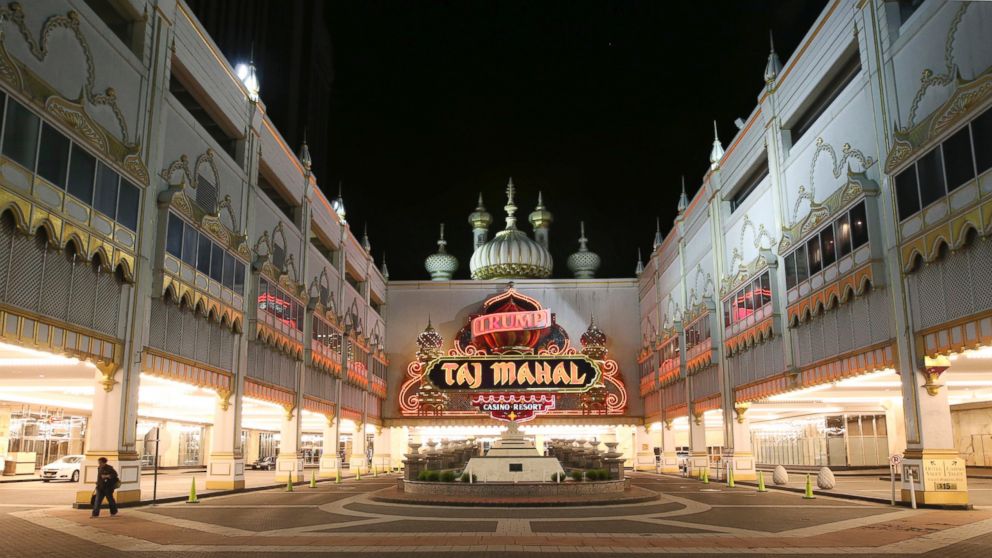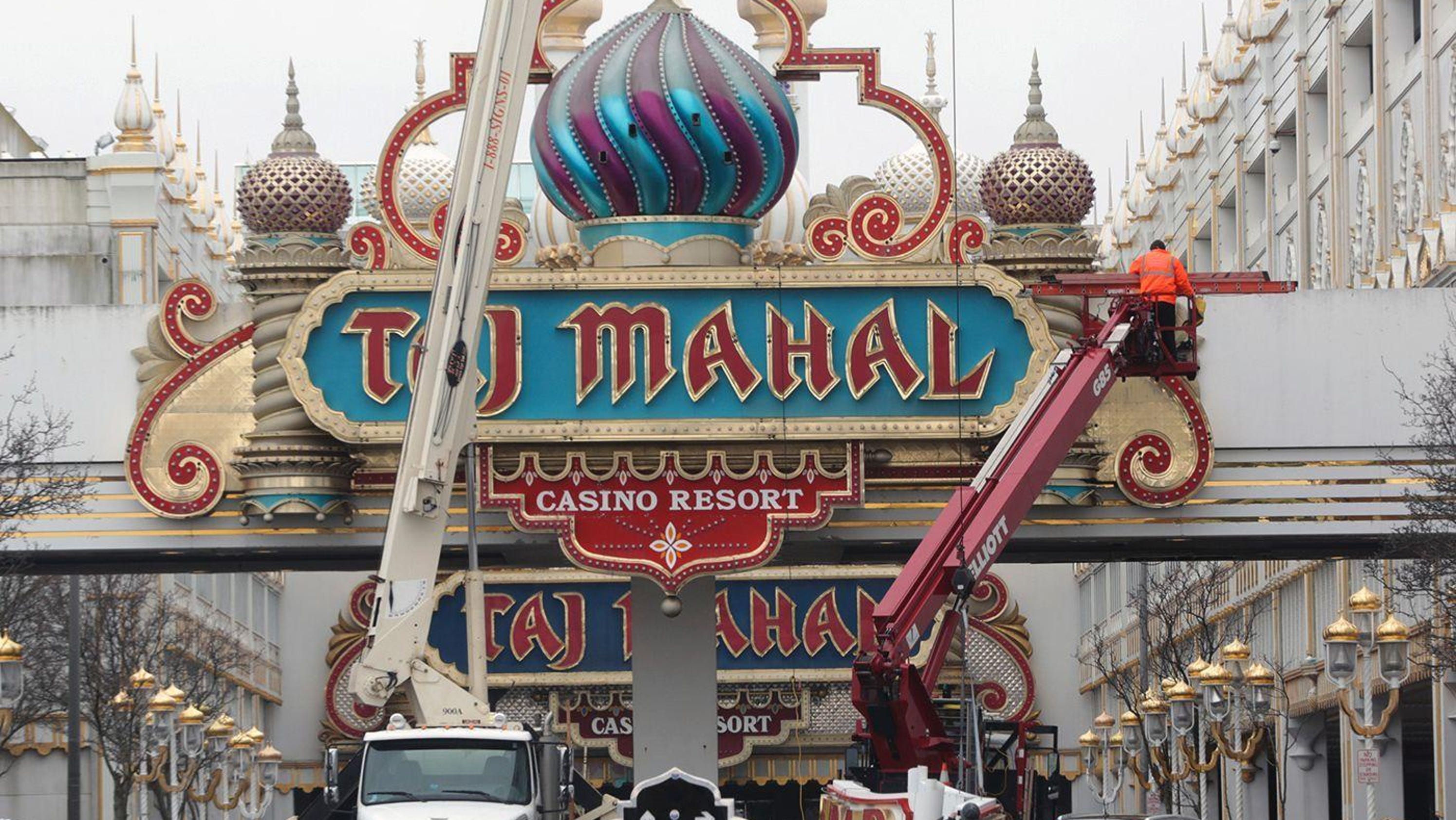Taj Mahal Trump Casino Atlantic City
Taj Mahal Hotel and Casino Almost 30 years before he became US President Donald Trump had tried to buy the Taj Mahal’s namesake, a casino in New Jersey, but ended in bankruptcy. Started by a hotel and casino company, Resorts International, Trump bought Taj Mahal Hotel and Casino in Atlantic City in 1988 for $230 million during his streak of. — - The Trump Taj Mahal Casino and Resort in Atlantic City, New Jersey, was advertised as the eighth wonder of the world when it opened in 1990. It was Donald Trump’s biggest and boldest. Donald Trump has a long history in Atlantic City. During the big boom period of New Jersey's gambling capital, Trump built the Taj Mahal (now the Hard Rock Casino and Resort) and also ran the Trump Plaza Hotel and Casino. At the time, the Taj Mahal was one of the most impressive casinos on earth.

Taj Mahal Trump Casino Atlantic City Nj


WASHINGTON, DC – The Financial Crimes Enforcement Network (FinCEN) today imposed a $10 million civil money penalty against Trump Taj Mahal Casino Resort (Trump Taj Mahal), for willful and repeated violations of the Bank Secrecy Act (BSA). In addition to the civil money penalty, the casino is required to conduct periodic external audits to examine its anti-money laundering (AML) BSA compliance program and provide those audit reports to FinCEN and the casino’s Board of Directors.
Trump Taj Mahal, a casino in Atlantic City, New Jersey, admitted to several willful BSA violations, including violations of AML program requirements, reporting obligations, and recordkeeping requirements. Trump Taj Mahal has a long history of prior, repeated BSA violations cited by examiners dating back to 2003. Additionally, in 1998, FinCEN assessed a $477,700 civil money penalty against Trump Taj Mahal for currency transaction reporting violations.
'Trump Taj Mahal received many warnings about its deficiencies,' said FinCEN Director Jennifer Shasky Calvery. 'Like all casinos in this country, Trump Taj Mahal has a duty to help protect our financial system from being exploited by criminals, terrorists, and other bad actors. Far from meeting these expectations, poor compliance practices, over many years, left the casino and our financial system unacceptably exposed.'
Trump Taj Mahal admitted that it failed to implement and maintain an effective AML program; failed to report suspicious transactions; failed to properly file required currency transaction reports; and failed to keep appropriate records as required by the BSA. Notably, Trump Taj Mahal had ample notice of these deficiencies as many of the violations from 2012 and 2010 were discovered in previous examinations.
The construction of Trump Taj Mahal casino hotel began in the year 1983 in Atlantic City, New Jersey by Resorts International and the budget was estimated to be$250 million. The death of James M. Crosby, the resorts head in April 1986 led to the bidding of the Taj Mahal. The Trump Taj Mahal casino will shut down after Labor Day, the victim of the longest strike in Atlantic City's 38-year casino era.
Director Shasky Calvery expressed her appreciation to the Internal Revenue Service, Small Business/Self-Employed Division, which performed the examinations of Trump Taj Mahal, for their contributions to the investigation and for their strong partnership with FinCEN. She also thanked the Commercial Litigation Branch of the U.S. Department of Justice for their assistance with this enforcement action.
Trump Taj Mahal petitioned for bankruptcy in September 2014. That bankruptcy remains pending. The Bankruptcy Court approved of Trump Taj Mahal’s settlement on March 4, 2015.
Trump Casino Atlantic City Address
FinCEN seeks to protect the U.S. financial system from being exploited by illicit actors. Its efforts are focused on compromised financial institutions; third-party money launderers; transnational organized crime; terrorist and other security threats; significant fraud; and threats to cyber security. FinCEN has a broad array of enforcement authorities to target both domestic and foreign actors affecting the U.S. financial system.
FinCEN's mission is to safeguard the financial system from illicit use and combat money laundering and promote national security through the collection, analysis, and dissemination of financial intelligence and strategic use of financial authorities.